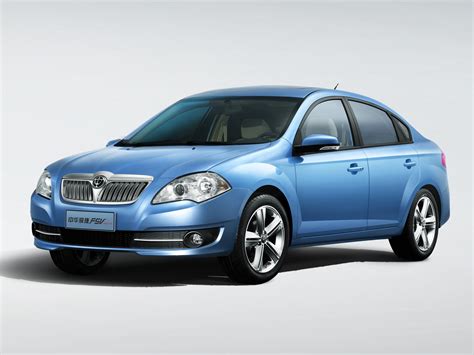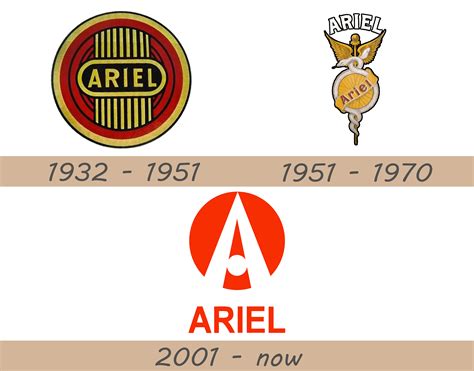Explore Suzuki’s early years, expansion into global markets, car design innovations, impact on automotive industry, and future plans. Discover the legacy of Suzuki.
Early years of Suzuki
Contents
Suzuki Motor Corporation, a renowned automobile manufacturing company, has a rich history that dates back to the early 20th century. The company was founded by Michio Suzuki in 1909 as Suzuki Loom Works, which initially focused on producing looms for the cotton industry. However, with the rise of the automobile industry in Japan, Michio Suzuki recognized the potential for diversification and the company ventured into the production of motorized vehicles.
In 1937, Suzuki Motor Corporation was established as a separate entity and the company began producing its first prototype car, the Suzuki Suzulight. This marked the beginning of Suzuki’s journey into the automotive industry, with a focus on compact and lightweight vehicles that were well-suited for the Japanese market.
Despite facing challenges during World War II, Suzuki’s commitment to innovation and adaptability allowed the company to thrive in the post-war era. By the 1950s, Suzuki had emerged as a leading manufacturer of motorcycles and small cars in Japan, setting the stage for its expansion into international markets.
Throughout its early years, Suzuki remained dedicated to technological advancements and engineering excellence, leading to the development of iconic models such as the Suzuki Carry and Suzuki Fronte. These vehicles not only showcased Suzuki’s commitment to quality and performance but also laid the foundation for the company’s future success in the global automotive industry.
Suzuki’s expansion into international markets
In the 1960s, Suzuki made a strategic decision to expand its operations beyond Japan and enter international markets. This expansion was driven by the company’s ambition to become a global player in the automotive industry and to increase its market share. Suzuki initially focused on exporting its motorcycles, which had already gained a strong reputation for their reliability and performance, to countries in Asia and Europe. The company’s success in these markets laid the foundation for its expansion into other regions.
As Suzuki’s international presence grew, the company began to diversify its product offerings to include automobiles. The introduction of the Suzuki 4×4 and Swift models in the 1980s allowed the company to gain a foothold in the competitive global automotive market. With its reputation for fuel efficiency and affordability, Suzuki quickly gained popularity in countries with a high demand for compact and reliable vehicles.
In the 21st century, Suzuki continued to expand its global reach by establishing production facilities and joint ventures in key international markets such as India and China. These strategic moves allowed Suzuki to not only increase its manufacturing capacity but also to better understand and respond to the needs of local consumers. By tailoring its product lineup to suit the preferences of different regions, Suzuki was able to solidify its position as a leading international automotive brand.
In recent years, Suzuki has continued to focus on expanding its presence in emerging markets such as Africa and Latin America, where there is a growing demand for affordable and durable vehicles. The company’s commitment to providing high-quality products and building strong relationships with local distributors and dealers has enabled it to establish a strong foothold in these regions. Suzuki’s expansion into international markets has not only contributed to the company’s global success but has also played a significant role in driving economic development and improving mobility in various parts of the world.
Innovations in Suzuki car designs
Suzuki has been a pioneer in bringing innovative designs to the automotive industry, particularly in the realm of compact cars. One of the key design innovations introduced by Suzuki is the development of lightweight yet durable materials for their vehicles. This has allowed them to create cars that are not only fuel-efficient but also have reduced carbon emissions, catering to the growing demand for eco-friendly transportation options.
Another significant innovation in Suzuki car designs is the incorporation of advanced safety features. From airbags to collision warning systems, Suzuki has prioritized the safety of their customers by integrating cutting-edge technology into their vehicle designs. This commitment to safety has helped establish Suzuki as a trusted brand in the automotive market, especially among families and commuters.
Furthermore, Suzuki has been at the forefront of creating aesthetically pleasing and functional designs for their cars. By combining sleek exteriors with spacious and ergonomic interiors, Suzuki has been able to appeal to a wide range of consumers looking for both style and practicality in their vehicles. This emphasis on design has not only enhanced the overall driving experience but has also contributed to Suzuki’s success in the global automotive industry.
- Lightweight yet durable materials
- Advanced safety features
- Aesthetically pleasing and functional designs
| Year | Innovation |
|---|---|
| 1985 | Introduction of all-wheel drive in compact cars |
| 2000 | Implementation of fuel injection systems for improved efficiency |
| 2015 | Integration of touchscreen infotainment systems |
Suzuki’s impact on the automotive industry
Suzuki has had a significant impact on the automotive industry since its inception in 1909. The company has established itself as a key player in the global automotive market, with a strong emphasis on producing high-quality, reliable vehicles at an affordable price point. Through its commitment to innovation and customer satisfaction, Suzuki has carved out a niche for itself in the industry, influencing the way other car manufacturers approach design and production.
One of the most notable impacts of Suzuki on the automotive industry is its focus on fuel-efficient vehicles. With growing concerns about environmental sustainability and rising fuel costs, Suzuki has been at the forefront of developing small, efficient cars that deliver impressive fuel economy. This has not only influenced other automakers to prioritize fuel efficiency in their designs, but has also contributed to a shift in consumer preferences towards more environmentally friendly vehicles.
Moreover, Suzuki has played a significant role in making automobiles more accessible to a wider audience. By offering a range of affordable and reliable vehicles, the company has made car ownership a reality for many individuals who may not have been able to afford a car otherwise. This has had a profound impact on the automotive industry, as it has forced other manufacturers to reconsider their pricing strategies and cater to a broader market.
In addition to its contributions to the industry’s product offerings, Suzuki‘s impact on the automotive industry can also be seen in its approach to global expansion and collaboration. The company has formed strategic partnerships with other automakers and has expanded its reach to various international markets. This has not only strengthened Suzuki‘s presence on a global scale, but has also encouraged other manufacturers to explore opportunities for collaboration and growth in new markets.
In conclusion, the impact of Suzuki on the automotive industry has been far-reaching and impactful. From its focus on fuel efficiency and affordability to its global expansion and collaborative efforts, Suzuki has left a lasting mark on the industry, influencing the way cars are designed, produced, and sold around the world.
Suzuki’s legacy and future plans
Since its founding in 1908, Suzuki has quickly become a prominent player in the automotive industry. Over the years, the company has left a lasting legacy with its dedication to producing high-quality, reliable vehicles. In the future, Suzuki’s plans to continue this legacy by expanding its presence in international markets and implementing innovative designs to meet the evolving needs of consumers.
In terms of legacy, Suzuki has a rich history of producing compact and fuel-efficient cars that have made a significant impact on the automotive industry. The company’s commitment to providing affordable and practical vehicles has made it a popular choice for consumers around the world. As part of its future plans, Suzuki aims to build on this legacy by further enhancing its lineup of eco-friendly cars and embracing new technologies to meet environmental standards.
Furthermore, Suzuki has made a mark in the automotive industry by continuously innovating its car designs. The company has been known for incorporating advanced features and technologies into its vehicles, offering customers a superior driving experience. Looking ahead, Suzuki plans to push the boundaries of car design even further, with a focus on creating stylish and cutting-edge cars that appeal to a wide range of consumers.
In terms of future expansion, Suzuki has set its sights on entering new international markets and strengthening its presence in existing ones. By leveraging its reputation for producing reliable and high-performing vehicles, Suzuki aims to capture a larger share of the global automotive market. Additionally, the company has plans to expand its range of electric and hybrid vehicles to cater to the growing demand for sustainable transportation options.
In conclusion, Suzuki has established a strong legacy in the automotive industry, and its future plans reflect a commitment to building on this legacy. By focusing on innovation, expansion, and sustainability, Suzuki is poised to continue making a significant impact in the automotive world for years to come.












